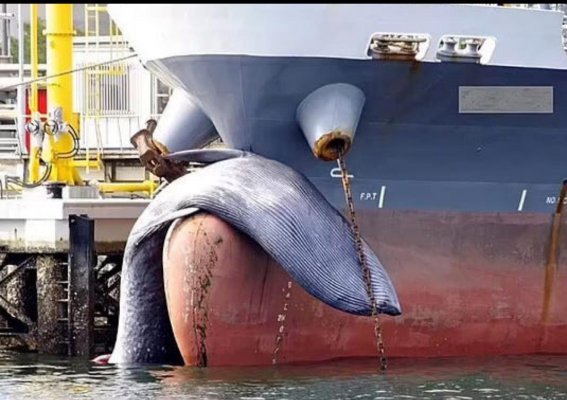Can't there be some sort of sound/impulse/vibration forced into water off of big ships that would make whales want to steer way clear? I imagine this has been tried with little to no success.
Nothing against whales... but, I have been told they are smart... why in the heck would they come close to a bug noisy ship anyway?? Maybe it's just baby whales that get chewed up??; cause they know no better.
Nothing against whales... but, I have been told they are smart... why in the heck would they come close to a bug noisy ship anyway?? Maybe it's just baby whales that get chewed up??; cause they know no better.

